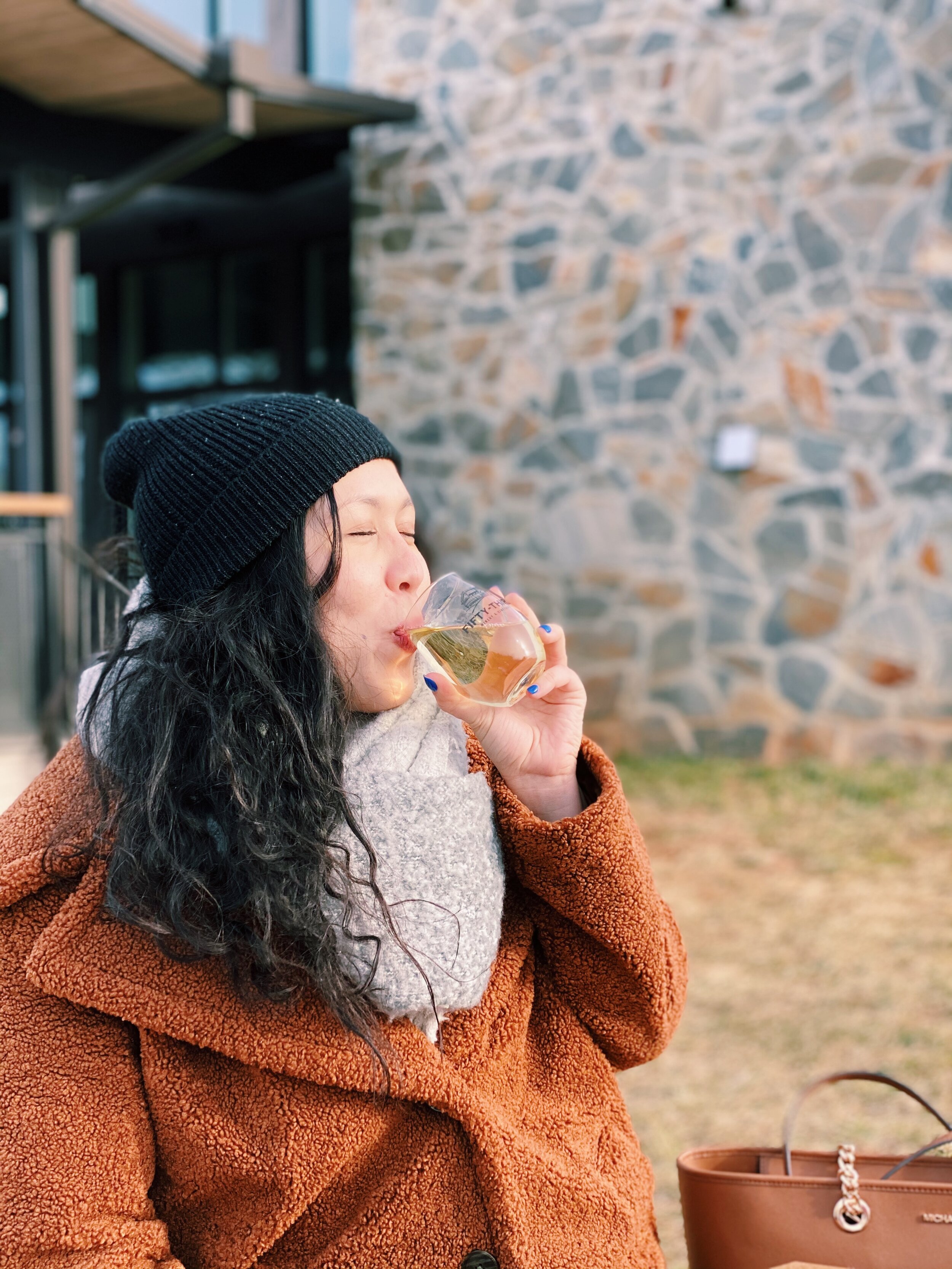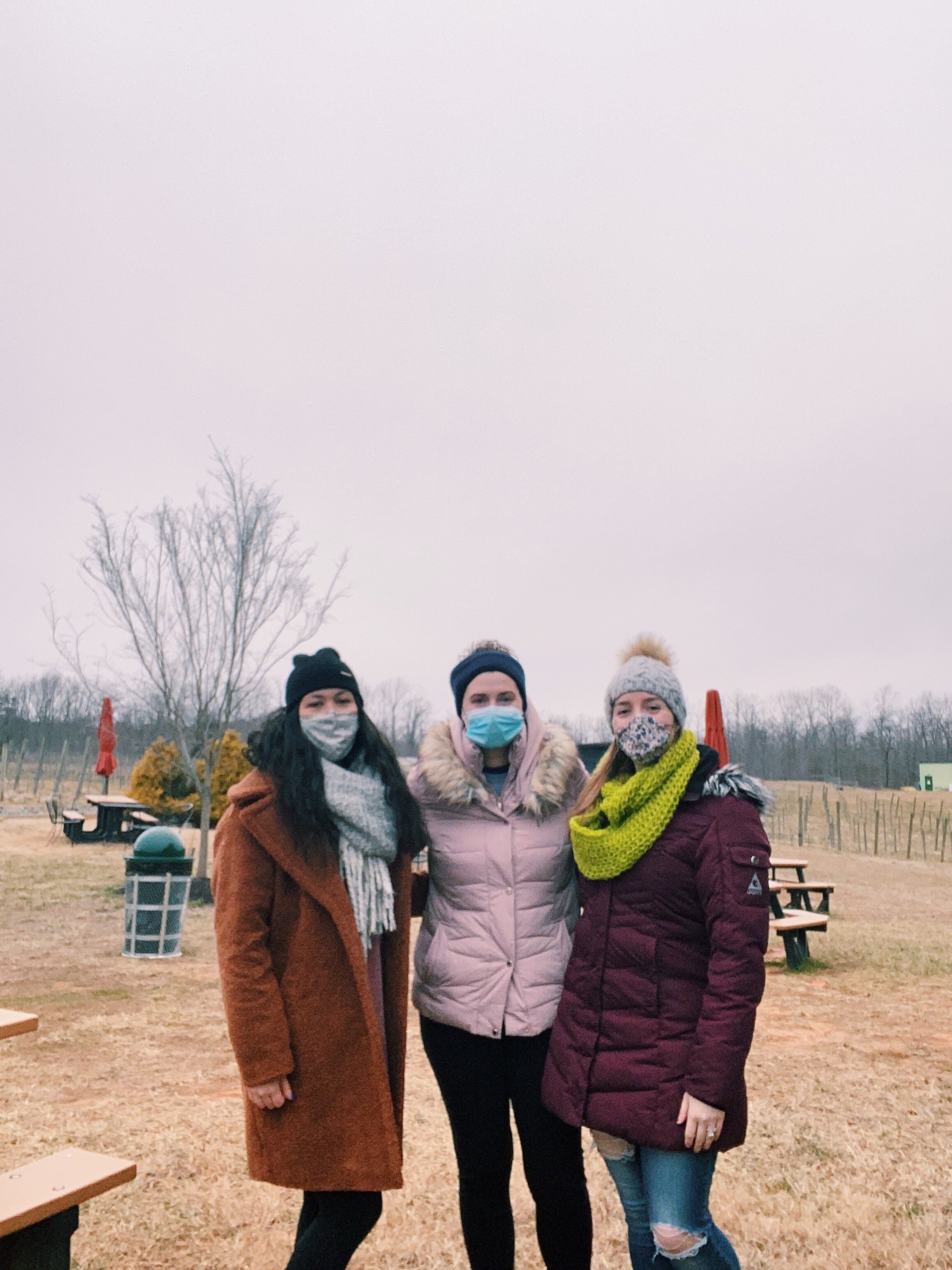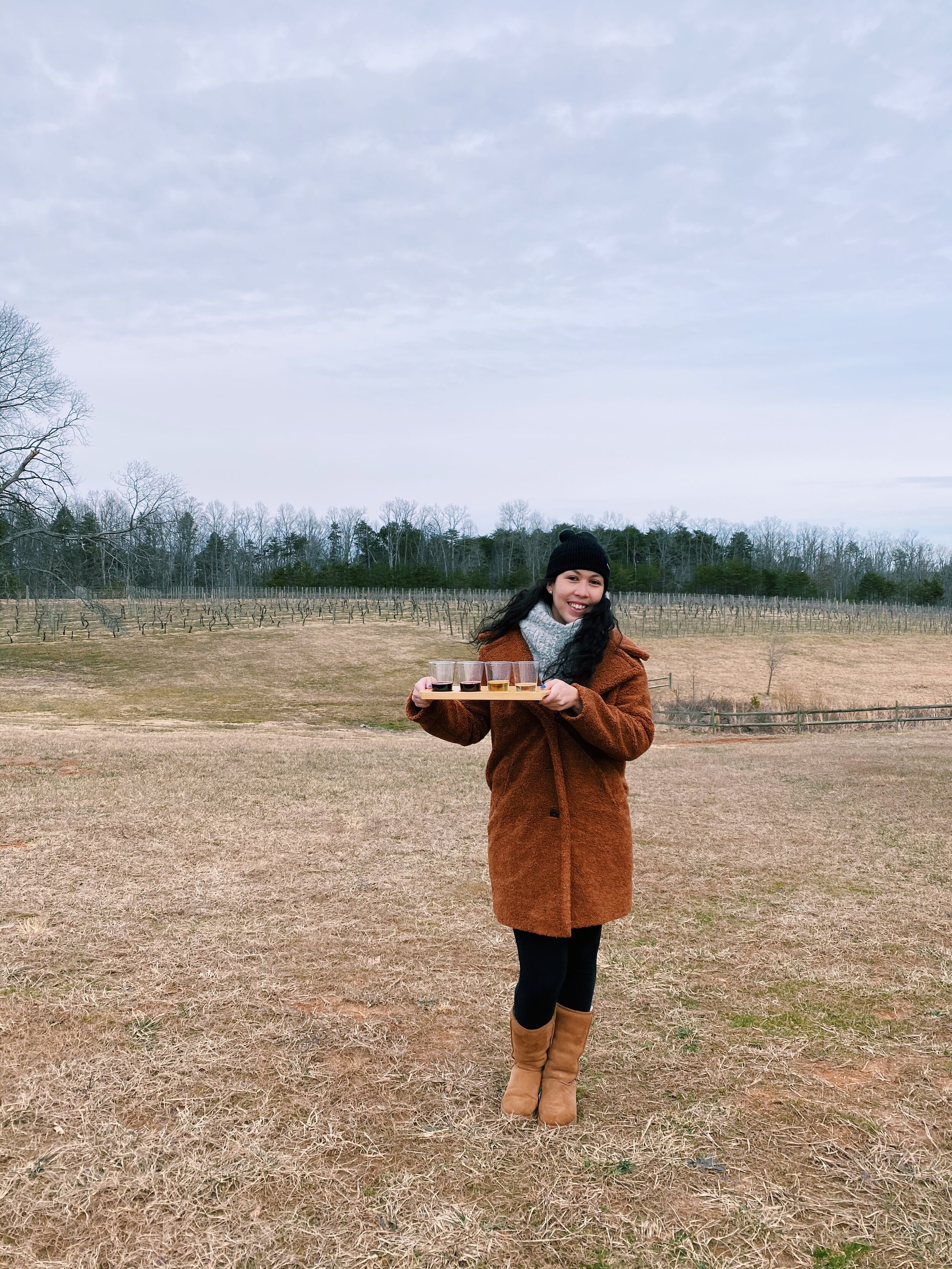Q&A with Fifty Third Winery’s Head Winemaker
If y’all have seen any of my posts, you know I had a blast at 53rd winery with my friends mid-January (if you missed it, I’m linking it here). We enjoyed a winter picnic on their picnic tables, a delicious wine flight, and came home with some great bottles!
I wanted to know more about their business, so I reached out to them for a Q&A, and am so excited to share it with you! Their head winemaker Chelsey Blevins (4th photo below) was so thoughtful with her responses, check it out below!
How did 53rd Winery get started?
53rd Winery officially began in 2015 when Dave and Susan Drillock moved to Virginia from New Jersey. They purchased a pre-existing vineyard known as Cooper Vineyards, which began in 1999, and have since worked diligently to re-brand the business over to 53rd Winery and Vineyard. The name was
chosen because we are the 53rd licensed farm winery in the state, and the decision to rebrand came from the idea of wanting to bring new life to the pre-existing vineyard.
What was the biggest challenge in getting started?
I feel the biggest challenge in getting started was acclimating our customers and the Cooper fanbase to the change in re-branding without turning them away. We wanted to make sure that our focus was on producing high-quality wines at a reasonable price, but not stop producing the keystone wines from the Old Cooper Vineyards days. It’s been a delicate balance and a slow process of re-branding to help ease everyone in. I feel Dave and Susan have been very successful with this tightrope walk of keeping all parties happy. Our Wine Club has grown, and even the followers from the original Cooper days appreciate the efforts that have been made in producing high-quality wines.
How did you guys learn about wine production at the beginning of your journey?
I learned about wine production initially by training on the job. I started my journey back in 2014, one day on a whim I stopped by Horton Vineyards for a visit. I took a tour of the facilities and was really interested in seeing how everything worked, needless to say, I ended up walking out with a job. I didn’t have any official training at that point but I did enjoy wine and was very interested in learning more about the process. Mike Heny the previous Winemaker at Horton, took me under his wing and began teaching me all of the basics of production. From there I was hooked. I dove into the PVCC Viticulture and Enology courses, to further my education and am currently working on the Winemaking Certificate offered by U.C. Davis. Still to this day most of my training has been by practical experience.
How do you select which grapes to grow and which wines to make?
There are really several reasons for working with the varietals that we have chosen. The biggest deciding factor is we tend to focus on producing grape varietals that will grow well in the specific vineyards sites that we are currently working with. We take into account the different soil types of our sites, the airflow and drainage, elevation, etc. Then use that knowledge with what we know about specific grape varietals to plant what we know will grow the best. That way we produce more consistent fruit that can be used to make high-quality wine. Another factor in determining what varietals we grow is consumer demand. We pay very close attention to our wine club and the wines that they are regularly purchasing or asking for more of. We want to make sure that we are making wines that our consumers are familiar with and confident in purchasing so we diligently watch to see what sells the best throughout the year.
What are your best selling products?
Our best selling products are the: Viognier, Rose, Chardonel, Cabernet Franc, Norton, and Sweet Louisa
What is the biggest day to day challenge in tending to the vineyard and managing a winery?
I believe the biggest day to day challenge in managing a winery/vineyard is knowing full well that you can’t control everything (like the weather) no matter how well you plan. You have to constantly maintain a roll with the punches attitude otherwise this can be a brutal industry to work in. You ultimately learn how to be flexible and gain knowledge in working in all kinds of different circumstances, but it is one of the more challenging aspects of the job that isn’t always so apparent.
What’s unique about the wine industry in Virginia?
The wine industry in Virginia for me is unique in three different ways. The first being, this is a relatively young industry that in the last 20 years has exponentially picked up momentum. We are still experimenting with cool varieties across the state, and we don’t have to deal with strict regulations like they do in Europe or California. We are sort of like Wine Pioneers; and being in such a young industry has allowed for someone like me, who doesn’t come from a winemaking background to actually make a name for myself.
The second reason Virginia is so unique is that our region combines the best of New World and Old World Winemaking practices. The Virginia climate allows for us to grow Old world Varieties and give them a breath of New World pizzaz. It’s exciting as a winemaker to be able to produce these unique wines and show the public just how amazing the Virginia terroir can be. My final reason as to why I think Virginia is truly unique is a little more sentimental but I wholeheartedly feel that the comradery between wineries/winemakers/viticulturists across the state makes Virginia a unique and successful industry. The individuals who make up the Virginia Wine industry are tireless hard workers that are beyond considerate & passionate. They are more than willing to pass on their knowledge to open ears and give their all-in spite of uncertainty or circumstance. Wine Production can be a very competitive global industry, but in Virginia, we realize that we are all in this together. We all want to see Virginia shine and that is why this is such a wonderful industry that I am very
proud to be a part of.
What is your advice for someone wanting to start a vineyard and winery?
Do your research. There are plenty of great online courses available, and I highly recommend completing at least one of those programs before jumping in. It’s also a good idea to get some practical hands-on experience and seeing what the day to day operations actually look like. For this I recommend working as an intern at a local winery and talking with as many industry members as you can. Prepare yourself accordingly, be ready to work every day for the rest of your life and make sure to have plenty of capital to back you up. This is a labor of love.





